Fireside Chat with Mary Alice Dwyer and Shaji Kalathil
Download this Article
Healthcare has the potential to be radically transformed by digital technology and we believe that the most competitive pharmaceutical companies in the coming decade will leverage data and digital technologies to drive differentiating services and will be in the forefront of pushing the boundaries of digital innovation in healthcare. These leaders will generate and analyze vast volumes of research and real-world data to discover transformational medicines and will excel at communicating scientific evidence to stakeholders. They will help physicians navigate in a far more sophisticated and complex healthcare ecosystem and help them make difficult decisions that are the right decisions for patients. Medical Affairs teams can become a strategic force for pharmaceutical companies in this journey with their deep scientific knowledge, disease understanding, and the healthcare technology advancements that aid in the betterment of the entire medical industry.
Mary Alice Dwyer, MAPS Executive Leadership Committee member and Lead of the Digital Focus Area Working Group, Principal Consultant, Medical Innovation and Insights and former Vice President, Global Medical Excellence and Patient Centricity, Global Medical Affairs, AstraZeneca and Shaji Kalathil, Executive Director, Global Head of IT for Medical Affairs, Bristol-Myers Squibb discuss how advancements in transformative technologies are driving a new wave of digital innovation opportunities for healthcare.

“There is a tremendous opportunity for Medical Affairs to be leaders in advancing digital innovation and truly change how they engage Health Care Providers and patients. Through the strategic implementation of digital innovation, Medical Affairs can embrace technology that will transform not only what we deliver, but how we engage with HCPs and patients. Exploring technologies like AI and ML and other innovative tools will further define the impact Medical Affairs can have.” –Mary Alice Dwyer

“These are exciting times in the pharmaceutical industry with fast- paced digital innovation and the potential to transform the Medical Affairs customer engagement model and data generation capabilities with disruptive technologies, artificial intelligence and advanced analytics. I also envision significant advancements in “beyond the product” digital solutions and services for complex therapies in the future that will improve patient outcomes and Medical Affairs becoming the custodian of these services.” –Shaji Kalathil
How do you foresee the evolution of the Medical Affairs customer engagement model in the future and the impact of digital innovation in healthcare?
Mary Alice:
Medical Affairs leaders continue to expand their role in “customer” engagement, whether the customer is the health care provider (HCP) or the patient. While Medical Affairs has always been responsible for Thought Leader or KOL engagement, it is often viewed from the perspective of what information Medical Affairs could provide to the HCP. As teams begin to explore digital solutions and new ways of engaging, it opens the opportunity to think from the “customer” point of view. This new perspective enables Medical Affairs to approach information exchange from a “customer experience perspective”. Digital Innovation in healthcare enables Medical to engage in scientific exchange in new and unique ways and deliver what the “customer” wants, when and how they’d like to receive it. Ultimately, Medical Affairs needs to anticipate what the HCP or patient needs, so their experience is optimized. We need to plan for a truly personalized approach to our scientific engagement.
The expectation to deliver information in new and innovative ways has been set by the customer and is a high bar for Medical Affairs to achieve. Our customers (HCPs and patients) experience seamless information access in their daily lives and expect that same experience in their professional and healthcare interactions. People expect to search for answers when it is convenient for them, they like multiple sources of information, and they want answers quickly. A key challenge for Medical Affairs is to be easily accessible and be the trusted source of information.
Shaji:
I am really thrilled about the possibilities for transforming the Medical Affairs customer engagement model with digital technologies. We now have an influx of innovations in the pharma industry, especially in Oncology, making incredible strides toward better and safer treatments for patients. Science is delivering a large amount of knowledge that will help us understand diseases that have until now been beyond our reach. Today, technology is giving us tools to capture vast amounts of patient data and genetic information, which will fuel an unprecedented expansion of biomedical research. This will continue to shift pharmaceutical innovation into higher gear especially with the foray into new scientific innovations such as cell therapy. Medical Affairs is in a prime position to advance the understanding of these highly complex therapies for the healthcare community and support patient centric outcomes. The power of digital technologies, big data and artificial intelligence can be strong drivers to achieve this goal and we need to seize this opportunity.
There are three key areas with great opportunities to apply healthcare technology advancements and transform the Medical Affairs customer engagement model.
1.Delivering exceptional customer experience focused on science through a deeper understanding of medical insights, physician journey, preferences and needs from all digital touchpoints, AI-powered engine to predict best engagement plans & actions, real time digital interaction tools and beyond the product digital services & solutions.
2.Seamless connection of our digital medical information assets with external digital channels for healthcare professionals (EMR solutions, Patient Care Management Solutions, Physician Digital Networks etc.) to communicate highly scientific medical information at the point of care in real time.
3.Use of artificial intelligence models and machine learning technologies to enrich and expand the utility of real world evidence, and generate faster, more precise insights.
There seems to be great interest on the topic of customer insights generation by Medical Affairs to shape strategy and impactful customer engagement. Can you share your perspectives?
Mary Alice:
Medical Affairs has a tremendous opportunity to impact how our organizations understand the healthcare landscape as well as the HCP and the patient’s perspective. We are in a unique position to engage decision makers, understand the clinical healthcare environment and patient experience. Digital innovation in healthcare would further our ability to not only capture these insights, but to also analyze and identify trends. The insights that Medical Affairs team gathers can improve the understanding of how the medicine is being used and the potential need for further data. These insights can improve clinical programs and launches. Technologies such as machine learning and artificial intelligence, will enable us to gather, analyze and interpret these insights. The growing importance of Medical Affair’s role with Real World Data further cements the need for digital tools to manage this amount of data. For Medical Affairs to shape strategy and impact customer engagement we must capture, analyze and incorporate robust insights. Digital tools will be critical to enable this capability.
How do you think digital innovation can advance the medical insights capabilities?
Shaji:
Digital innovation in healthcare can play an impactful role in transforming the medical insights capability in two areas – the way our customer facing teams in Medical Affairs collect medical insights as well as the approach to analyze the unstructured insights to understand emerging trends on unmet medical needs, and clinical practice. The first part is pure technology automation with the opportunity to create an exceptional digital user experience for the medical insights collection and collaboration processes. The second part of analyzing medical insights for uncovering trends is a classic use case to leverage artificial intelligence capabilities – We can use Natural Language Processing (NLP) to synthesize these insights and understand emerging trends that will speed up the analysis and help drive timely, proactive actions, and impact strategy. The fast paced innovation in the NLP space will help us position this approach to add more business value in the future.
Together these solutions can create a powerful “digital medical insights engine” that will influence Medical Affairs customer engagement strategy and strategic decisions in Commercial and Clinical Development.
If you look towards the future (5-10 years) what areas of Medical Affairs would you see as completely transformed by the digital innovation of healthcare and how will you describe the business impact of this transformation?
Mary Alice:
I believe all parts of Medical Affairs have the opportunity to transform, both by improving operational efficiency and through delivering a more tailored “customer-focused” engagement. I believe these innovations will improve our communications and engagements. One of the most immediate opportunities is in Medical Information and exploring a move to on-demand information provision. Also, the area of promotional material review is an area that is ready for utilization of artificial intelligence and machine learning.
If I look 5 to 10 years into the future, Medical Affairs will have made great progress, including getting the right infrastructure in place. Important areas such as having a customer master, the ability to tag data and information and having an external web presence will be customary. We’ll be exploring virtual reality and augmented reality in education and training. We’ll be perfecting opportunities in areas like digital publications. We will be increasing the automation of routine functions that enable the highly trained Medical Affairs staff to focus on scientific opportunity. Medical Affairs will be utilizing digital to create websites that create unique opportunities to engage HCPs and patients. Medical Affairs will be a trusted source of information, providing education and optimizing knowledge transfer.
What are the most promising innovations you are seeing in the technology landscape that can transform Medical Affairs?
Shaji:
There is no better time than now to embrace disruptive digital technologies in the pharma industry. I am most excited about three technology trends with the potential to transform Medical Affairs digital capabilities and help improve patient outcomes.
1. Advanced digital customer engagement technologies that can deliver personalized experiences and innovative services for the healthcare professionals based on their needs and preferences in real time will have a profound impact on accelerating their understanding of safe and appropriate use of our medicines and the underlying science.
2. The pace of advancements in AI and specifically natural language processing/understanding (NLP/NLU) will dramatically increase. We are going to see some major breakthrough innovations in the NLP/NLU space in the coming years that will surprise everyone and mimic the advancements in image recognition/deep learning, powering the driverless car revolution. This will also have positive implications on how we use the voice technologies to enhance personalized services for customers. We will transition to an “AI-fueled” customer engagement model in Medical Affairs with more matured customer intelligence datasets that will leverage next generation digital tools. This will help the Medical Affairs colleagues in engaging with their customers more effectively by better understanding their needs and by providing access to the most relevant scientific data at the right time.
3. Patient data analytics will become key to clinical decision support, quality measure performance, improved patient care and demonstrating value. We will need to position scientific exchange with the ability to combine, analyze, and interpret disparate data sets to support the interactions with stakeholders and ultimately to improve patient outcomes. This will involve use of real-world evidence, electronic medical records, curated sets of aggregated data on various disease types and novel sources of data, such as genomics in combination with innovative ways of mining and interpreting that data.
There is a lot of buzz about the possibilities with artificial intelligence in pharma. How do you envision the digital innovation of healthcare impacting Medical Affairs with advancements in artificial intelligence?
Mary Alice:
Medical Affairs is consistently being expected to work with growing amounts of data, whether this data comes from insights, Real World Data, or working with the “data lake”. Artificial Intelligence is critical for analyzing large data sets and it will be important for Medical Affairs to have the capability to utilize these tools. I believe these technologies will transform how we understand the clinical environment and decision making, how we deliver information, and engage HCPs, Payers and Patients. These technologies will enable us to improve our ability to deliver a more tailored approach to everyone we interact with because we are basing those interactions on evidence.
Shaji:
Artificial Intelligence has great potential to drive up productivity and enhance several core aspects of the pharma business from disease diagnosis and drug discovery to more effective scientific exchange with healthcare professionals. Specifically there are opportunities in Medical Affairs to leverage natural language processing and machine learning AI capabilities for analyzing trends from medical insights, generating insights for precision treatment & improved patient outcomes with real world evidence, engaging with the healthcare professionals using voice technologies, and helping the customer facing medical teams to present the most value-added scientific information based on customer needs and preferences. Advancements in machine learning and high quality customer data for Medical Affairs can lead us to “Scientific Engagement Advisor” digital solutions akin to the ”Next Best Action” concept in Financial Services and “Recommendation Engines” concept in Retail/Streaming Media. This will help predict effective customer engagement strategies to empower the MSLs (medical scientific liaisons) based on previous engagement experiences, medical insights and all customer data points. The importance of having good quality data to drive your AI solutions should not be underestimated, especially given the fact that the customer data for Medical Affairs is largely in unstructured format. I am very optimistic about these uses cases for Medical Affairs that should redefine positive customer experience and ultimately help the patients.
We should be mindful about the tendency to blindly chase after shiny technology objects without really connecting them to real business problems. Often times this is highly visible in the artificial intelligence space with exuberant claims on possibilities and the result is a major gap between visionary/lofty discussions on on the digital innovation of healthcare and actual delivery of digital solutions for customers and patients on the frontlines. We need to be very cautious about falling into this “innovation bubble trap” and rather should focus on driving impactful ideas to reality with a fail fast approach.
We are seeing an increasing number of technology innovators focusing on healthcare. How do you foresee this external innovation fueling Medical Affairs in driving transformative digital capabilities?
Shaji:
There are considerable opportunities to build more effective partnerships with pure play technology companies that will address complex problems in healthcare. We need to think in terms of bringing each other’s strengths to the table and co-creating digital solutions. Pharma has a unique understanding of the challenges physicians and patients are facing and can help guide these partners. At the same time these digital technology partners can offer new technology capabilities that will help us reimagine the type of solutions we can deliver to our customers and patients. Digital therapeutics is an area where we are seeing success, and there are advancements in improving diagnoses, adherence, disease awareness, and self-management of conditions. Creating strong, co-development partnerships with core technology companies and healthcare technology startups does not happen in a flash. It is important to define a common value proposition with these type of partnerships and we need to look through the lens of co-developing solutions, not just funding startups. These mutually beneficial partnerships can drive a culture of innovation in larger pharma organizations as well.
We also need to closely watch and adapt digital innovations from other industries with similar business capabilities such as
- Retail industry for online & in-store digital customer experience
- Hospitality industry for enhanced service automation tailored on individual preferences
- Financial services for personalized wealth management & virtual customer interactions
- Aerospace industry for operational excellence in predictive maintenance & fuel monitoring through big data analytics
What are the most important factors leaders like you should take into consideration for success in driving digital innovation of healthcare for Medical affairs?
Mary Alice:
To ensure success in driving the digital innovation of healthcare, many factors need to be in place. Leaders need to be ready to build the right capabilities and this might involve changes in structure. These new capabilities can be built by bringing in external resources, working with internal resources or training current staff. One critical question for the future will be how Medical Affairs will build the expertise to incorporate digital innovation in how we do our daily jobs. I don’t think we can go this alone. We’ll need to partner across the enterprise to leverage unique expertise (eg IT, data analytics, etc). Many Medical Affairs teams are bringing in non-traditional Medical Affairs capabilities by hiring employees with background in areas such as data science. Roles with this expertise bring a unique skill and by embedding these roles in the Med Affairs team and encouraging partnerships an innovative environment is created. Many Medical Affairs teams are also partnering with their internal data and analytics team. This partnership is uncovering new opportunities, especially as companies establish huge sources of data across the enterprise.
A critical area that is often overlooked is the need to free up time for the Medical Affairs leaders and their teams to explore how this new innovation will change how they deliver their accountabilities. Digital innovation in healthcare is a transformational change and how it impacts the team and their work needs to be considered. Another area that requires the investment of time is considering how the team will engage senior leaders to get traction and funding on their projects. These are important aspects that must be considered if Medical Affairs is to be successful in driving digital innovation.
Shaji:
The most important focus with any digital innovation journey should be on driving differentiation and competitive advantage. We need to think beyond the “easy to chase digital innovation concepts” and elevate the innovation thinking process to truly transformative ideas that will address our biggest business problems and significantly improve customer experience. Essentially, we should dial up the emphasis on transformational innovation. In order to accomplish this, the leaders should create an entrepreneurial environment for ideation and development of these ideas. This will require a deeper dive into the core business value drivers for Medical Affairs with the right talent to understand the innovative technologies and an “artistic approach” to imagining the possibilities, often connecting the dots between multiple business value drivers and the disruptive potential of the latest technologies. A deep-rooted culture based incentive system (leaders encouraging to take big leaps forward and providing sponsorship for experimentation with cover for expected failures) is also necessary to drive this shift.
Driving digital transformation in Medical Affairs also requires a broader enterprise mindset compared to other functions. Since Medical Affairs is very closely connected to R&D and Commercial, it is important to visualize the concepts of digital innovation in healthcare through an enterprise lens and have an “outside in” perspective (such as customer experience alignment with touchpoints beyond Medical Affairs) for solutions targeted for customers and patients.
Finally, we will need to educate the executive leadership team on how technology is impacting their business, engage them in imagining the possibilities, and make them strong digital advocates by bringing them along the innovation journey.







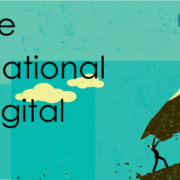
 The medical world is changing and changing fast. As multiple new technologies start to transform every aspect of the healthcare ecosystem and the lines between biosciences and data science fade, companies need medical leaders who not only understand the latest medical advances but also the potential and scope of data and digital, along with their implications – not least that this new paradigm requires strategists who are comfortable with organizational transformation and who can lead change. Dr Rajni Aneja is one such strategist: she specializes in the crossover between business and technology across a variety of health sectors.
The medical world is changing and changing fast. As multiple new technologies start to transform every aspect of the healthcare ecosystem and the lines between biosciences and data science fade, companies need medical leaders who not only understand the latest medical advances but also the potential and scope of data and digital, along with their implications – not least that this new paradigm requires strategists who are comfortable with organizational transformation and who can lead change. Dr Rajni Aneja is one such strategist: she specializes in the crossover between business and technology across a variety of health sectors.
 And what about the benefits? There is clearly substantial value in a system that encourages us to learn about the patient – not least, greater customization, personalization, and simplicity for the patient. This encompasses patient-reported outcomes, behavioral profiles, social, and other demographic data leading to consumer segmentation, which in turn can deliver on targeted interventions and interactions.
And what about the benefits? There is clearly substantial value in a system that encourages us to learn about the patient – not least, greater customization, personalization, and simplicity for the patient. This encompasses patient-reported outcomes, behavioral profiles, social, and other demographic data leading to consumer segmentation, which in turn can deliver on targeted interventions and interactions.
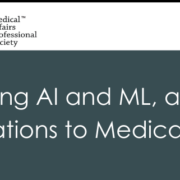

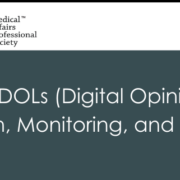

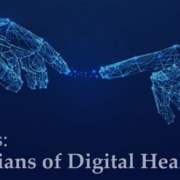
 “The ubiquity of mobile devices now means that we have an opportunity through these digital technologies to improve health outcomes: through basic communication services, but also highly innovative services with regard to tracking and sensor development, measurement of biometrics and delivery of medical services.” He suggests that the vision for digital health is nevertheless relatively straightforward: “It’s not just about providing information, but rather providing integrated services that are proven to improve clinical outcomes.”
“The ubiquity of mobile devices now means that we have an opportunity through these digital technologies to improve health outcomes: through basic communication services, but also highly innovative services with regard to tracking and sensor development, measurement of biometrics and delivery of medical services.” He suggests that the vision for digital health is nevertheless relatively straightforward: “It’s not just about providing information, but rather providing integrated services that are proven to improve clinical outcomes.” Health technology companies, academia, HCPs, and patients – as well as pharmaceutical companies – are delivering these digital solutions successfully. Butler highlights a couple of examples, including GlycoLeap’s diabetes system. “This tracks the obvious things like your activity, your nutrition, your glucose levels and your body mass index, but also combines it with a behavioral psychologist and nutritionist that you can access at any time. Basically, you get a personalized diabetes management program through your smartphone app, which would never have been dreamed about 10 years ago.”
Health technology companies, academia, HCPs, and patients – as well as pharmaceutical companies – are delivering these digital solutions successfully. Butler highlights a couple of examples, including GlycoLeap’s diabetes system. “This tracks the obvious things like your activity, your nutrition, your glucose levels and your body mass index, but also combines it with a behavioral psychologist and nutritionist that you can access at any time. Basically, you get a personalized diabetes management program through your smartphone app, which would never have been dreamed about 10 years ago.”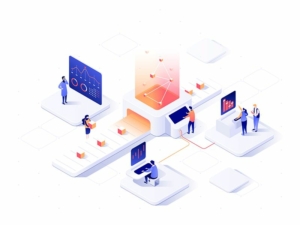 “The problem is that this ‘one-bucket’ perspective on digital means that the ‘commercial produce/medical review’ approach is extended into digital activities where it is not appropriate. Provision of digital health solutions is one such area. To me, these are health interventions that solve problems for patients and there is a very clear analogy with the health interventions we call medicines. We have a moral duty to protect patients using such interventions from harm, respect their autonomy and maximize the benefit they can gain.”
“The problem is that this ‘one-bucket’ perspective on digital means that the ‘commercial produce/medical review’ approach is extended into digital activities where it is not appropriate. Provision of digital health solutions is one such area. To me, these are health interventions that solve problems for patients and there is a very clear analogy with the health interventions we call medicines. We have a moral duty to protect patients using such interventions from harm, respect their autonomy and maximize the benefit they can gain.”